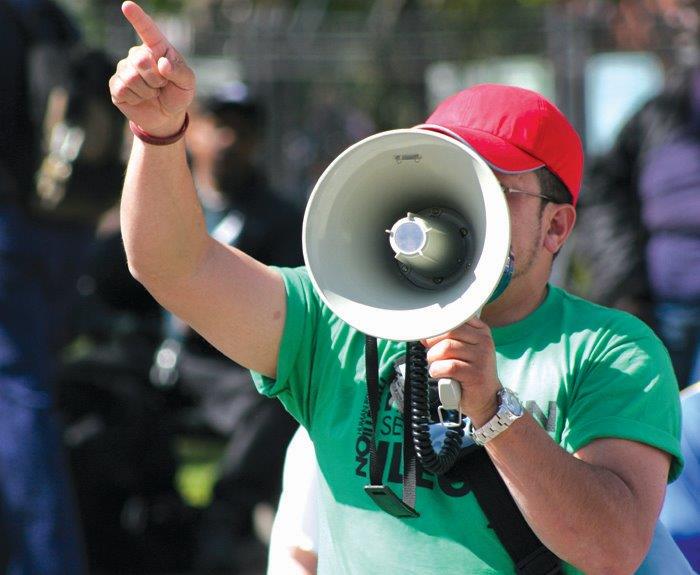For followers of Jesus, when it comes to speaking up for the rights of the marginalised, our voice should be as bankable as the presence of dreadlocks and bongo drums at a G8 rally. Proverbs 31:8-10, Psalm 82:3, Isaiah, 1:17 and Luke 4:18-19 are just some of the Bible verses that make our responsibility clear. However, in my opinion, it is not the verses that are compelling, so much as the vision for life that lies behind them.
Old Testament theologian Walter Brueggemann suggests that in the pages of the Hebrew scriptures we see God’s chosen people, the Israelites, constantly faced with ‘either or’ decisions. In other words, they can live according to the standards and values of the world around them or they can live according to God’s alternative reality – life with God at the centre where justice, humility and mercy are valued. This alternative vision for life finds its full expression in the person of Jesus. He demonstrates what life to the full looks like; life with God at the centre which he invites us to join in. This is the crux of the Gospel. American theologian, Ron Sider says, “The vast majority of New Testament scholars today, whether evangelical or liberal, agree that the central aspect of Jesus’ teaching was the Gospel of the kingdom of God.”
We don’t talk about kingdoms much these days, so the term can lack meaning, but the concept is pretty straight forward. A kingdom literally means a ‘king’s domain’ – it’s where the king’s values, attitudes and ways of doing things hold sway. So what does God’s domain look like? The short answer to that question is, shalom.
The word shalom appears in our Bibles over 200 times where it is usually translated as ‘peace’. However, it means so much more than just the absence of conflict. Shalom refers to peace with God, self, neighbour and the land. It speaks of a domain where people have submitted their lives to the authority of God and so are committed to living according to God’s values and God’s vision for life. An alternative reality where there is love, compassion, generosity and justice.
As followers of Jesus (the Prince of Peace) part of our job description is to help his shalom become reality – which means we need to act and speak out wherever that is not the case. We long to see people connected to and at peace with God, just as we long to see a world where justice and compassion are a reality. This is why I am thankful for the work of our Uniting Church Social Justice Unit who campaign on our behalf in so many different areas and why I need to be intentional about adding my voice to theirs (and others) efforts.
Finally, using our voice for the voiceless can be uncomfortable, especially if it means criticising a popular policy or government. You may have even heard people suggest Christians should stay out of the political arena.
Romans 13:1-2 tells us we need to submit to our governing authorities, but this does not mean we cannot use our voice to criticise the actions of our government. The same chapter also makes clear that governments have a responsibility to lead the way God intended. Therefore, submission to the state does not entail uncritical obedience. Paul himself challenges the governing authorities in Philippi for denying him his rights as a Roman citizen by unjustly imprisoning and beating him (Acts 16.) Likewise, Paul and Silas refuse to stop preaching the good news despite a directive from the government to do so (Acts 17:6-7.)
Our voice is a blessing and one we are called to use as we partner with God in seeking God’s shalom for the world.
Andrew Broadbent.
At the recent Annual Meeting of the Synod and Presbytery, Andrew Broadbent was accepted for ordination into the ministry of deacon.
